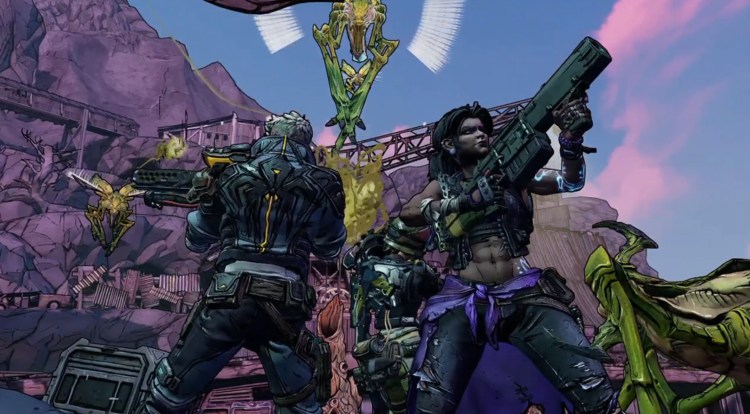The war between rival digital storefronts on PC wages on. On Wednesday, Epic Games CEO Tim Sweeney made a comment on Twitter about what it’d take for the company to stop signing exclusive games on the Epic Games Store.
Sweeney claims that if Valve, the company operating Steam, permanently adopted a revenue share model similar to Epic’s (his company takes a 12% cut and gives the rest to developers), then Epic would “hastily” retreat from exclusives.
If Steam committed to a permanent 88% revenue share for all developers and publishers without major strings attached, Epic would hastily organize a retreat from exclusives (while honoring our partner commitments) and consider putting our own games on Steam.
— Tim Sweeney (@TimSweeneyEpic) April 25, 2019
We reached out to both Epic Games and Valve for comment. A representative from Epic declined to offer any additional context, and Valve hasn’t responded as of publication.
Sweeney, Epic’s outspoken boss, has never been shy about replying to people on Twitter. He often uses the social media platform to vocalize or address various concerns, like arguing against closed platforms in VR or defending the Epic Games Store.
GamesBeat PC gaming editor Jeff Grubb offered some insight into the CEO’s comments, saying that Sweeney knows Valve could never afford to drop that low. He noted that some of the 30% Valve gets from game sales is reinvested into Steam’s infrastructure, especially when it comes to supporting different payment options in other countries.
This is the bar because he knows Valve can't do it. To make 88 percent work, Valve would have to stop issuing unlimited free codes to developers (killing many other third-party stores), and it'd have to stop taking many non-credit-card payment options. pic.twitter.com/FMGzxTnqce
— Grubb (@JeffGrubb) April 25, 2019
The fledgling Epic Games Store has been signing big exclusive deals over the past few months, including Borderlands 3, Metro Exodus, and The Division 2. While they’ve helped drive interest — the store has 85 million customers as of March — they’ve also been one of the biggest criticisms from both developers and gamers.
Some consider it an anti-consumer practice, one that defeats the purpose of playing on an open platform like the PC. Epic also addressed those concerns at the 2019 Game Developers Conference.
“But at some point, hopefully people just come [to the store], or the industry moves down and matches us. … At some point, we could go to zero, or we could go to very, very few major exclusives in any given year,” said Steve Allison, head of Epic Games Store, at the time. “We’ll definitely not be doing them at the scale we’re doing now, not for an extended period of time.”

